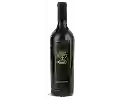
Château Haut-MonplaisirMonplaisir Rosé
This wine generally goes well with poultry, beef or mature and hard cheese.
Food and wine pairings with Monplaisir Rosé
Pairings that work perfectly with Monplaisir Rosé
Original food and wine pairings with Monplaisir Rosé
The Monplaisir Rosé of Château Haut-Monplaisir matches generally quite well with dishes of beef, spicy food or mature and hard cheese such as recipes of roast monkfish with bacon, couscous chicken and merguez or savoyard fondue.
Details and technical informations about Château Haut-Monplaisir's Monplaisir Rosé.
Discover the grape variety: Malbec
Malbec, a high-yielding red grape variety, produces tannic and colourful wines. It is produced in different wine-growing regions and changes its name according to the grape variety. Called Auxerrois in Cahors, Malbec in Bordeaux, it is also known as Côt. 6,000 hectares of the Malbec grape are grown in France (in decline since the 1950s). Malbec is also very successful in Argentina. The country has become the world's leading producer of Malbec and offers wines with great potential.
Informations about the Château Haut-Monplaisir
The Château Haut-Monplaisir is one of of the world's greatest estates. It offers 12 wines for sale in the of Côtes du Lot to come and discover on site or to buy online.
The wine region of Côtes du Lot
The wine region of Côtes du Lot is located in the region of Comté Tolosan of Vin de Pays of France. Wineries and vineyards like the Domaine Georges Vigouroux or the Château Lagrézette produce mainly wines pink, red and white. The most planted grape varieties in the region of Côtes du Lot are Malbec, Chardonnay and Merlot, they are then used in wines in blends or as a single variety. On the nose of Côtes du Lot often reveals types of flavors of peach, stone fruit or cherry and sometimes also flavors of citrus, strawberries or melon.
The wine region of Comté Tolosan
Comte Tolosan is a PGI title that covers wines produced in a large area of Southwestern France. The PGI basin encompasses 12 administrative dePartments and is home to a wide range of appellations d'origine contrôlée (AOC) such as Jurançon, Cahors and Armagnac. The IGP label provides a geographical classification for wines that are not classified for AOC level appellations due to Grape variety or winemaking style. The region is part of the Aquitaine basin - the plains that lie between the Pyrenees, the Massif Central and the Atlantic Ocean to the west.
The word of the wine: MA
Auxiliary brand or buyer's brand (supermarket for example) gathering champagnes of various origins. It offers no guarantee of quality or traceability.














